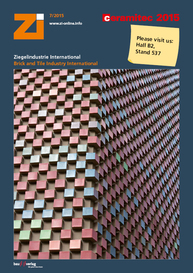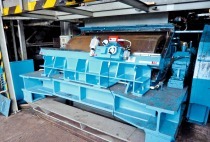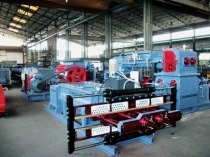New Pilatus roller turning machine
Pilatus Maschinenbau AG in Switzerland is a leading manufacturer of roller turning machines for the ceramic industry.
Based on tests and computer simulations conducted by Lucerne University of Applied Sciences and Arts and a series of field tests, an entirely new machine has been developed.
The new machine has numerous outstanding properties, including and in particular a light but sturdy type of construction, friction-locked exchangeable guides, a compact, precision-controlled drive train and a modularized design. Pilatus roller turning machines combine well with any and all roller mills.
Hall B2, Stand 126





